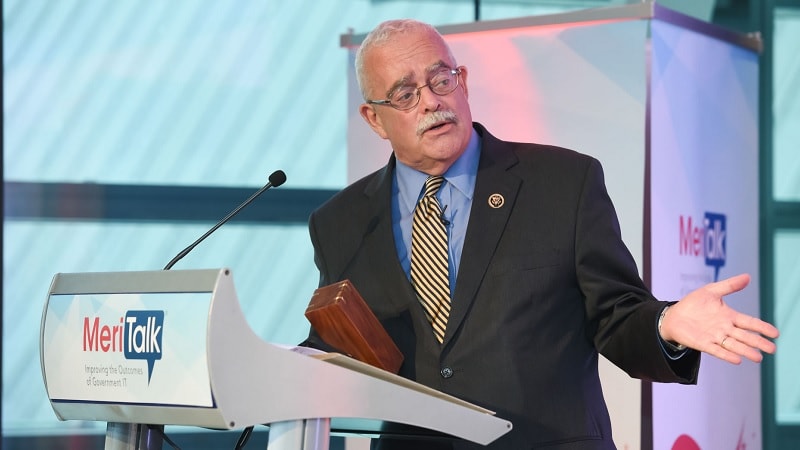
Witnesses at the House Government Operations Subcommittee’s July 20 hearing on Federal IT modernization will call for swift action by Congress and agencies to modernize IT infrastructure and services. The witnesses will offer a host of recommendations to clarify and simplify funding and policy inputs that can spur faster modernization.
The hearing – entitled “Federal IT Modernization: How the Coronavirus Exposed Outdated Systems” – will mark the panel’s first formal look at IT modernization issues since the coronavirus pandemic emerged in March. It will cast into sharper focus the vital role that Federal technology has played in delivering essential services to citizens in times of crisis.
“The events of the last four months have led us to a once-in-a-lifetime opportunity to re-imagine and modernize Federal IT … for the better of all,” MeriTalk Founder Steve O’Keeffe will tell the subcommittee, according to his prepared testimony.
O’Keeffe will recommend that the government reduce program and compliance complexity, and revamp evaluation categories of the Federal Information Technology Acquisition Reform Act (FITARA) scorecard issued by the House Oversight and Reform Committee to grade Federal agency modernization progress. The proposed “FITARA 2.0” should create a direct connection to funding under the Modernizing Government Technology (MGT) Act and through the Technology Modernization Fund (TMF), he will say. O’Keeffe will flag CARES Act and other stimulus funding, and caution that much of this money is funding IT around agencies’ CIO offices – accelerating the “IT sprawl” and inefficiency FITARA is supposed to eliminate.
Finally, O’Keeffe will propose that the next Federal CIO should be chosen from within the Federal government IT community so that the position immediately benefits from their experience.
“Ms. Suzette Kent and Mr. Tony Scott have acquitted themselves very, very well,” O’Keeffe will testify. “However, bringing in somebody from outside the government IT community creates a massive learning curve – we have our own language and culture in government tech. This means that a newcomer’s first year will be occupied with finding the bathrooms – precious time in a three-to-four-year term. I sincerely hope we pick somebody that knows government tech – we have a lot of very well qualified candidates.”
Matthew Cornelius, Executive Director of the Alliance for Digital Innovation, will testify that Federal agency legacy technology problems go far beyond the use of older systems, but also represent a cultural problem both within government and in the private sector.
Two linchpins to lasting IT modernization, he will tell the subcommittee, are making it possible for Federal agencies to “easily and effectively” acquire and use commercial capabilities to achieve mission outcomes, and to provide the ability for agencies to make “many years of sustained investment” along with management adjustments to address challenges that will crop up along the way.
Cornelius also will recommend that Congress overhaul older Federal IT statutes such as Clinger-Cohen and the E-Government Act, revamp the FITARA scorecard to reflect new categories including cloud adoption and FedRAMP authorizations and reuse, and boost funding available to agencies through TMF and working capital funds.
“IT modernization is vital not only because it saves money and enhances cybersecurity – it is the primary means for agencies to competently and capably deliver important citizen services to the American people,” Cornelius will testify. “Modernization happens when several critical factors are involved – including a powerful commitment from agency senior leadership; agile acquisition authorities; sustained, reliable funding; thoughtful oversight from Congress and OMB; and strong collaboration between agencies and innovative industry partners.”
Gordon Bitko, Senior Vice President at the Information Technology Industry Council, will testify that Federal agency IT modernization is essential if citizen services are to keep up with the exponential growth in data, and to protect the government from ever-increasing cybersecurity threats. He also will point to the necessity of scalable and elastic commercial services for Federal agency IT modernization, and talk about how performance of some agency applications during the pandemic backs up that position.
IT modernization, Bitko will tell the subcommittee, remains difficult due to problems with long-term planning, risk aversion, and a failure to effectively update business processes and workforce skills. And he will say that government IT oversight practices need updating to reflect the realities of modern development.
